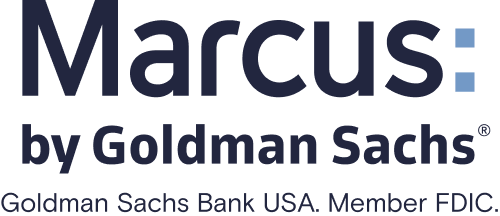Discover Bank CD Rates: Solid But Not Highest
The credit card issuer Discover has high-yield CDs with no opening minimum.

Many, or all, of the products featured on this page are from our advertising partners who compensate us when you take certain actions on our website or click to take an action on their website. However, this does not influence our evaluations. Our opinions are our own. Here is a list of our partners and here's how we make money.
Discover® CD rates are competitive with other online banks and the range of terms is extensive from three months to 10 years. There's also no minimum CD deposit. But there aren't any non-standard CDs with novel perks, such as no-penalty or add-on CDs.
Discover is a large online bank that offers checking and savings accounts with no monthly fees, and a solid savings rate, so CDs fit in within a strong lineup of accounts.
Discover says: "All information about Discover® CDs and Discover® Online Savings has been collected independently by NerdWallet. Discover® CDs and Discover® Online Savings are no longer available through NerdWallet."
» COMPARE: See the best CD rates
NerdWallet's take: Discover® Bank’s CD rates don’t lead the pack of online banks with high-yield CDs, but yields are solid or moderately competitive across a larger range of terms than most banks offer.
Discover Bank CD rates
3-month CD | 2.00% APY. |
6-month CD | 3.50% APY. |
9-month CD | 3.50% APY. |
1-year CD | 3.90% APY. |
18-month CD | 3.75% APY. |
2-year CD | 3.60% APY. |
30-month CD | 3.60% APY. |
3-year CD | 3.60% APY. |
4-year CD | 3.60% APY. |
5-year CD | 3.60% APY. |
7-year CD | 3.60% APY. |
10-year CD | 3.60% APY. |
CD details from Discover: "Annual Percentage Yield (APY) is accurate as of 11/04/2025, is subject to change without notice, and will be determined and fixed for the term at funding. Applies to personal accounts only. A penalty may be charged for early withdrawal. No minimum deposit to open."
More details about Discover Bank CDs
Minimum deposit | None. CD opening minimums tend to be $500 or $1,000, so having no minimum is an uncommon perk. |
Range of CD terms | 3 months to 10 years. This is an abnormally wide range, though a 10-year CD may require more consideration compared to other investing options. |
Early withdrawal penalty | Varies by term:
Compare early withdrawal penalties by bank. *The penalty can include more than actual interest earned if the withdrawal occurs early enough. |
Other fees | None, which is common for CDs. |
Grace period | 9 days after the CD's maturity date. Discover CDs automatically renew, so this 9-day window is the only time to withdraw without paying a penalty. Compare grace periods by bank. |
Main types of account ownership |
|
» Learn more about accounts on our Discover Bank review
What to consider when opening CDs
CD rates are fixed. If you open a Discover® CD today, its annual percentage yield will remain the same until the CD term ends.
Be aware of two common rules with CDs: You can’t make partial withdrawals of the original CD amount or add additional money after the initial funding of a CD.
You lose interest if you withdraw early. CDs are built to keep your money out of sight, out of mind. If you dip into a Discover® CD before it expires, there’s an early withdrawal penalty, which means losing some or all the interest you earned.
Interest accrues in a CD during the term, so you can benefit from compound interest. Alternatively, you can request to receive interest during the term to another Discover account or by check.
CDs auto-renew unless you opt out. To avoid renewal, withdraw during the grace period.
Compounding frequency doesn’t often help you compare rates. Like a savings account, a CD’s rate is primarily quoted as an annual percentage yield (APY), meaning the annual interest rate that factors in compounding. You can compare two interest rates with different compounding periods using APY. Alternatively, if you only know a CD’s interest rate, you need to know the compounding frequency — often daily or monthly — to estimate your return. Learn more about APY vs. interest rate.
» Need more access to funds? See the best high-yield savings accounts instead
Capital One’s deal to buy Discover has been approved by regulators. Existing Discover CDs will be separately insured until those CDs mature.

Member FDIC
Bread Savings® CD

4.05%
6 months

Member FDIC
Marcus by Goldman Sachs High-Yield CD

4.00%
1 year

Member FDIC
Synchrony Bank CD

4.10%
9 months
See CD rates by term and type
Compare the best rates for various CD terms and types:
How do CDs work?
Learn more about choosing CDs, understanding CD rates, and opening and closing CDs.
Choosing CDs:











